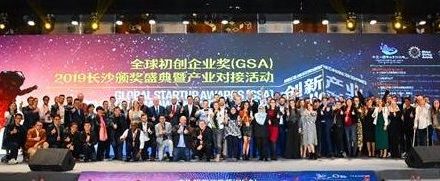
Industrial upgrading and modernisation in Tunisia and Namibia
The Namibian Manufacturers’ Association (NMA) was invited by the Ministry of Trade and Industry to participate in a study tour to Tunisia to gain appreciation of their Industrial Upgrading and Modernisation Programme. The tour was supported by the United Nations Industrial Development Organisation (UNIDO) and took place from 23 to 27 January.
Ms Petrina Nakale, acting director: Industrial Development at the Ministry of Trade and Industry, headed the Namibian delegation which consisted of representatives of the public and private sectors of Namibia, as well as some technical support institutions. The CEO of the NMA, Hennie Fourie, attended on behalf of the association.
The main purpose of the tour was to acquaint the newly constituted National Steering Committee, which is responsible for the Namibian Industrial Upgrading and Modernisation Programme, with the experience of Tunisia in implementing this programme. An Industrial Upgrading and Modernisation Programme was developed for the SADC region in 2007 and validated in 2008. In conformity with this programme, the Ministry of Trade and Industry also commissioned the development of such a programme for Namibia. This programme is expected to contribute to achieving the following goals in Namibia: improve global competitiveness of Namibian enterprises, facilitate the growth of enterprises, facilitate an increase in export of goods by enterprises operating in Namibia, promote investments (both local and foreign), promote job creation as well as facilitate skills development.
Spearheaded by the Ministry of Trade and Industry, Namibia plans to start implementing this programme from 1 April 2012. The effective implementation of this programme can have a significantly positive impact, not only on industrialisation in Namibia, but also on the socio-economic situation in the country.
Tunisia borders the southern Mediterranean Sea and presently has 11 million people and its capital, Tunis, has a population of three million people. It is on the doorstep of the large European Union (EU) market, but initially did not benefit through exports to this market. Tunisia also experiences a high rate of unemployment and unequal development. To benefit from the large EU market, a Free Trade Agreement (FTA) was signed with the EU. At that stage though, Tunisia had very little to export to the EU. The government then decided to initiate programmes for industrial development, as well as an Industrial Upgrading and Modernisation Programme to improve the competitiveness of industries as well as to make then export ready.
The Tunisian Ministry of Industry, Trade and Handcrafts is responsible for promoting industrial development, trade and international co-operation. It spearheaded the Industrial Upgrading and Modernisation Programme (IUMP) to benefit from the FTA with the EU. It appointed a 15 person National Steering Committee consisting of representatives of government, the private sector and banks to manage this Tunisian IUMP. The Minister of Industry, Trade and Handcrafts chairs this steering committee. A separate Upgrading Office Tunisia serves as the secretariat of the National Steering Committee and handles all applications in accordance with the Industrial Upgrading and Modernisation Programme.
Manufacturing companies that have been operating for at least two years and are financially sound can apply to this office for upgrading and modernisation. If a company decides to apply, it first has to appoint a consultant to analyse the company through a diagnostics study. Aspects such as state and type of equipment, production systems, effective use of technology, management systems, marketing management, energy-efficiency, financial sustainability etc are analysed. In this investigation, the company has to be completely transparent and provide all required information. Based on this study, the consultant develops a plan with proposals to improve the competitiveness of the company. The proposal of the consultant is then submitted to the Tunisia Upgrading Office, which analyses it and submits it to the steering committee for approval.
The cost of the diagnostics study is refunded by the Upgrading Office, even if the proposal is turned down, something which does not happen often. If the proposal is approved, 30% of the “hard” upgrading cost (infrastructure, equipment, etc) is refunded to the company and 70% of the “soft” upgrading cost (systems improvement, IT, capacity building, etc) can also be refunded.
Approximately 50% of all manufacturing companies in Tunisia have made use and benefited from this Industrial Upgrading and Modernisation Programme. Some companies have made use of it up to 3 times. This programme has resulted in high export growth to the EU and other adjacent markets, a significant increase in value added and people employed in Tunisia, more effective use of energy such as electricity, better use of technology, sound environmental management etc. In this process trust and good relationships have also developed between the public and private sectors.
Other institutions to support private sector development in priority sub-sectors which were developed by the Tunisian Government, are Technical Centres of Industry. The Technical Centre of Mechanical and Electrical Industries, the Technical Centre for Wood and Furniture and the Technical Support Institution for Agri-food sector were visited by the Namibian Delegation. Their functions are inter alia to test products and provide technical assistance to companies within that sector. They also assist with innovation, development of new systems and products as well as with the acquisition of new technology for their sector. By these actions the centres also assist the Upgrading Office in implementing the Industrial Upgrading and Modernisation Programme.
The lessons learned during this study tour can be well used during the implementation of the Namibian IUMP. The steering committee should ensure that the programme and expected advantages are well communicated to the private sector, that sufficient consultants are trained to execute the diagnostics studies at companies, that trust between all parties involved are developed, that company information is handled confidentially and that the administration of the programme is handled effectively.
If that happens, private sector will definitely support the Industrial Upgrading and Modernisation Programme and Namibia’s efforts to reach the goals of Vision 2030 will receive a welcome boost though the resultant accelerated economic growth.
Enquiries:
Hennie Fourie CEO: Namibian Manufacturers Association Windhoek, Namibia
Tel: 061-308053
Fax: 088-621079 E-mail: [email protected]













































